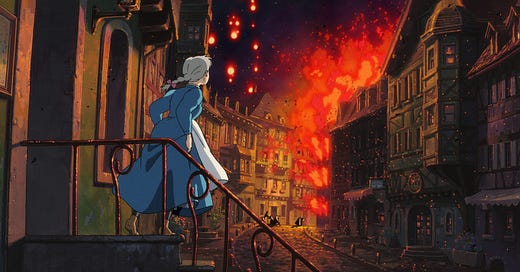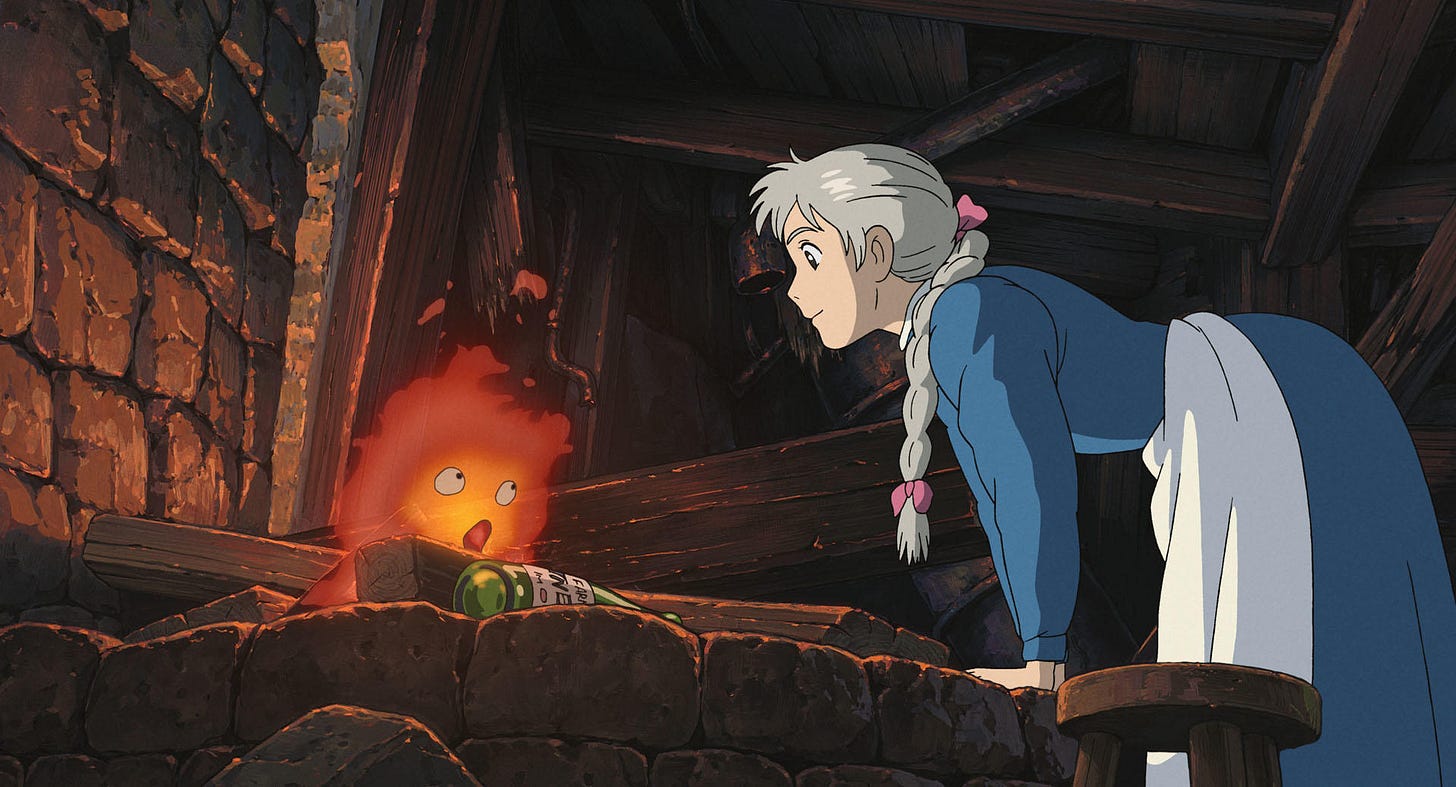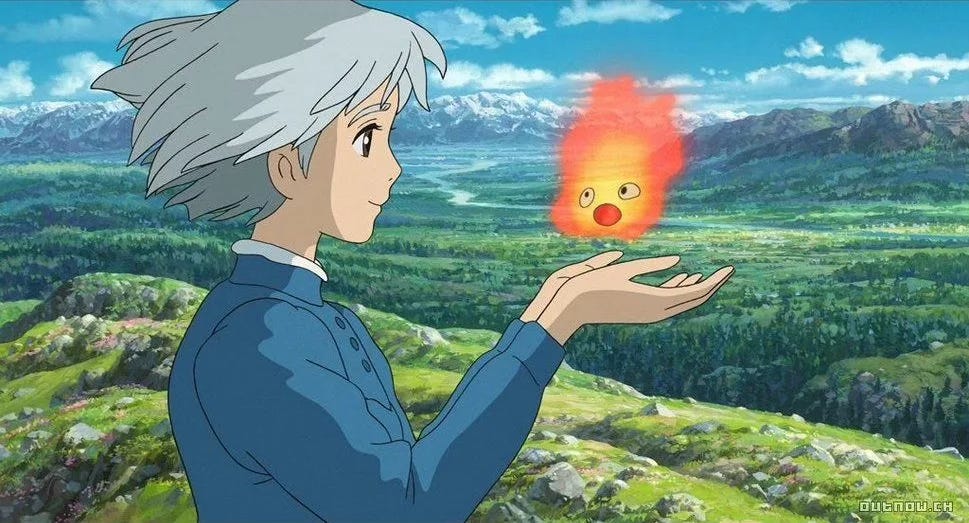The thing I love about Sophie in Howl’s Moving Castle is that for most of the story, she’s an old woman under the spell of the Witch of the Waste. How many protagonists get to be old women, much less almost completely unperturbed about their state?
But Sophie is also a namer:
“Calcifer’s voice came into Sophie’s mind, saying, ‘the contract isn’t doing either of us any good in the long run.” She felt a little chilly, in spite of the heat of the day blowing through the open widows of the shaded, elegant room. ‘Yes,’ she said, ‘He’s made some sort of contract with his fire demon.’
Mrs. Pentstemon’s hands shook a little on her stick. “That will be it. you might just break that contract, Mrs. Pendragon.’”
~Howl’s Moving Castle
It’s one of the areas in the story where Sophie doesn’t realize her own power. There are others, too —through the course of the story other people start to realize she is a witch, because she talks to things until they remember how alive they are, and she has the power to break curses. She does this by paying attention. She does it by naming:
“that’s why I asked you to do it. I could tell you could talk life into things. look what you did with the scarecrow and the skull,” said, Calcifer, the fire demon.
Sophie knows who things are and their true place.
In this story, Howl had a lot of people trying to curse him, so he made a pact with a fire demon Calcifer to keep his heart for him. He hid his heart inside the fire demon inside his own hearth. Hearts in these stories have to be protected. The things that protect them must be lethal. Nefarious, even. They have to be effective.
He kept his heart close, but outside of his body. He kept it hidden in the open, somewhere nobody would think to look.
He kept it somewhere other than where it was supposed to be.
Howl needed to trick himself into breaking the contract —that’s why he needed someone grating and dogged like Sophie. Someone who paid attention. (Like Violet Evergarden, who got free by following the command of someone who loved her.)
Howl without a heart is a coward. courage comes from the word heart after all. coeur.
it keeps himself safe, but it doesn’t keep the others around him safe.
Like spearfinger, who protects her own heart and eats livers — hearts stowed somewhere other than where they belong makes monsters or cowards (who really aren’t that different from one another).
In the movie named for the hero/antihero Deadpool, he kept being told, “you’re heart’s not in the right place,” as he tried to fix problems he didn’t start and kept making a mess of it all.
Finally in the third movie the phrase meant literally that — he took in a bullet in the chest, leaping in front of a boy who reminded him of himself and his own deep anger.
His heart blocked the bullet. It was finally in the right place.
“go in,” she told it. “get in there and work!” and she pushed and pushed. the heart began to sink in, and to beat more strongly as it went. Sophie tried to ignore the flames and scuffles by the door and keep up steady, firm pressure. her hair kept getting in her way. it fell across her face in reddish fair hanks, but she tried to ignore that, too. she pushed.
The heart went in.”
~Howl’s Moving Castle
some “demons” look like fire others like metal. some of us withdraw inside ourselves, some of us become a blade.
each, wielded wrongly, cut or poison. bloodbath or pyre.
or inverse, again: refiner’s fire, scalpel blade.
my heart takes up a lot of space. And she’s worn a lot of armor for that —she’s been taken for the initiator —the aggressor, even, just for existing as herself. She’s been so much heart that no one knows what to do with her.
Well what if I held my own heart? I try to ask myself. My own dear heart?
But that’s where I get stuck because when you hold your own heart it is no longer in the right place. It’s in your hand not your chest! A heart is meant to be in your own chest, chest to chest with another heart!
when i hold my own heart i hold it like a sword.






